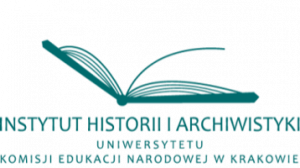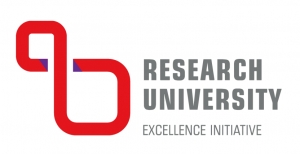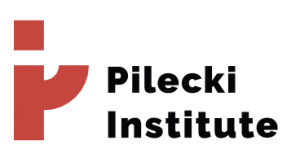The Postcolonial Perspective in the Study of Polish History:
Benefits, Challenges, Potential



![]()
CONFERENCE PROGRAMME
WEDNESDAY, OCTOBER 23
9:00 – REGISTRATION
10:00 – WELCOME ADDRESS
- Michał Rogoż, Prorector for Science (University of the National Education Commission)
- Andrzej Kuropatnicki, Dean of the Department of the Humanities (University of the National Education Commission)
- Piotr Puchalski, Associate Professor of History (University of the National Education Commission)
10:30 – KEYNOTE ADDRESS
- Lenny A. Ureña Valerio (University of New Mexico)
11:00 – PANEL 1: POSTCOLONIALISM AS A TOOL
Chair: Lenny A. Ureña Valerio (University of New Mexico)
- Elżbieta Kwiecińska (Institute of Slavic Studies, Polish Academy of Science)
Ukrainian Anticolonial Critique against the Concept of the Polish Civilizing Mission in the 19th Century
- Michał Maciejewski (University of the National Education Commission)
Polish Anticolonial Rhetoric during the Italian Invasion of Ethiopia, 1935-1939
- Patryk Labuda (Polish Academy of Sciences)
Contested Memories of Colonialism in Eastern Europe and the Global South
- Aleksandra Fila/Aleksandra Natalia Wojewska/Joanna Zabielska (University of Vienna)
Migrant Storytelling as a Decolonial Practice: The Case of Polish Migrants in Western Europe
13:00 – BREAK
14:30 – PANEL 2: REINTERPRETING HISTORY AND LITERATURE IN POSTCOLONIAL TERMS
Chair: Ian Macqueen (University of Pretoria)
- Jerzy Łazor (SGH – Warsaw School of Economics)
The Colonial and Imperialist Interpretations of Foreign Investment in Interwar Poland: Origins and Contexts
- Łukasz Zaremba (University of Warsaw)
From Colonial Imagery to Colonial Imagination. Visual Culture and Colonialism without Colonies in Interwar Poland
- Michał Lubina (Jagiellonian University)
‘A Journey to Burma’ by Gustaw Herling-Grudziński. A Postcolonial View
- Anna Konieczna (University of Warsaw)
Translation and Reception of South African Novels in Poland during the Communist Era
16:30 – PANEL 3: HISTORY AND MEMORY
Chair: Elżbieta Kwiecińska (Institute of Slavic Studies, Polish Academy of Science)
- John Freeman (University of Warsaw)
‘At Least We Don’t Have to Apologise for that Yet’: The Entanglement of Polish History with the Duchy of Courland’s Colonial Ambitions
- Marta Harasimowicz (Charles University in Prague)
Does the Memory of Socialism Need to Be Decolonized? Heritage of European Socialist Dictatorships in Museums and (New) Possibilities of Its Reflecting in Emancipatory Ways
- Jerzy Stachowicz/Agnieszka Haska (University of Warsaw)
From Margarine Palma to the ‘Conquest of the Black Land’: Colonial Discourse as an Element of Contemporary Polish Cultural Imaginarium
THURSDAY, OCTOBER 24
9:00 – PANEL 4: POLAND AND THE EUROPEAN EMPIRES
Chair: Keely Stauter-Halsted (University of Illinois at Chicago)
- Karina Gaibulina (Independent Researcher)
Forced into Ethnography: Polish Exiles in Colonial Service of the Russian Empire
- Jawad Daheur (Centre for Russian, Caucasian and Central European Studies in Paris)
Benefiting from the ‘Racial Contract’: The Consumption of Colonial Goods in Prussian Poland in the 19th Century
- Rachel O’Sullivan (Center for Holocaust Studies, Leibniz Institute for Contemporary History)
Nazi Germany’s Population Policies in Annexed Poland: A (Post)colonial Analytical Approach
- Zoltán Ginelli (Independent Scholar)
Globalizing the Generalplan Ost: The Transcolonial Histories of Central Place Theory
11:00 – PANEL 5: NEW INSIGHTS INTO THE INTERWAR PERIOD
Chair: Piotr Puchalski (University of the National Education Commission)
- Keely Stauter-Halsted (University of Illinois at Chicago)
Post-Colonial or Post-Imperial? The Residue of Empire in the Polish Second Republic
- Marta Grzechnik (University of Gdańsk)
Under Diverse Suns: The Maritime and River/Colonial League’s Positioning of Non-European Territories and Their Roles in the Colonial Programme
- Magdalena Kozłowska (University of Warsaw)
Encounters and Perceptions: Polish Jews and their Relations with Jews from the Middle East in the Interwar Period
- Jan Wasiewicz (Magdalena Abakanowicz University of the Arts in Poznań)
The Postcolonial Perspective in the Study of Peasant History. The Colonial Question in the Peasant Press of the Second Polish Republic
13:00 – BREAK
14:30 – PANEL 6: COMMUNIST POLAND AND THE GLOBAL SOUTH, 1945-1989
Chair: Mateusz Drozdowski (University of the National Education Commission)
- Matthieu Gillabert (University of Fribourg)
Academic and Lay Science Confronted with the Notion of ‘Race’ in Communist Poland (1945-1970)
- Katja Castryck-Naumann (Leibniz Institute for the History and Culture of Eastern Europe)
Thwarting the Nuclear Powers: The Polish Concept of Nuclear-Weapon-Free-Zones and Its Trajectory in the Decolonizing World
- Thục Linh Nguyễn Vũ (University of Vienna)
Vietnamese Voices: Polish-Vietnamese Connections during Global Socialism
- João Fusco Ribeiro (University of Évora, Portugal)
Unlocking Opportunities: Polish Economic Interactions in Angola in the Aftermath of Decolonization (1975-1979)
16:30 – PANEL 7: REFUGEES, MIGRANTS, ÉMIGRÉS
Chair: Michał Maciejewski (University of the National Education Commission)
- Aleksandra Kaye (Max Planck Institute of Geoanthropology)
Reframing Great Emigration: Polish Experiences in Latin America through a Postcolonial Lens
- Ben Dew (Coventry University)
Polish Émigrés in Britain and the Politics of Empire, 1830-1864
- Josef Butler (King’s College London)
Are We in the Same Boat? How Did the Experience of Polish Refugees in the British Imperial Periphery Affect Resettlement in Postwar Britain?
- Dorota Kołodziejczyk (University of Wrocław)
Anti-imperialist Discourse in the London Wiadomości: A Postcolonial Perspective
FRIDAY, OCTOBER 25
9:00 – PANEL 8: UNDERSTANDING AND CONCEPTUALIZATION OF POSTCOLONIALISM IN POLAND
Chair: Kamila Łabno-Hajduk (University of the National Education Commission)
- Piotr Puchalski (University of the National Education Commission)
Postcolonial Dissonance: Polish Émigré Attitudes toward Colonialism in Africa
- Jakub Szumski (Imre Kertész Kolleg Jena)
From South West Africa to East Timor. Poland’s Legal Encounters with the Global South at the International Court of Justice
- Christopher Lash (Łazarski University in Warsaw)
‘You Forgot Poland?’: Polish involvement in the Iraq war and its aftermath through a postcolonial lens
- Mateusz Drozdowski (University of the National Education Commission)
Postcolonial Perspective and Post-Soviet Studies: Differences and Opportunities
11:00 – PANEL 9: COLONIALITY IN GLOBAL CONNECTIONS
Chair: Tomasz Korban (University of the National Education Commission)
- Maria Rhode (Georg-August-Universität Göttingen)
Africa and the Religious Connection: Polish Anthropologists in the Field and at their Home Desks (19th-20th Centuries)
- Alexis Angulo (University of Warsaw)
It is Time for Poland to Look at Latin America. Understanding Coloniality in the Early Encounters between Poland and Latin America
- Rhuan Targino Zaleski Trindade (Universidade Estadual do Centro-Oeste – Brazil)
Polish Immigration and Brazilianness: The Narratives on ‘Polish Imperialism’ in Brazil during the 1930s
- Wiktoria Tabak (Jagiellonian University)
Looking beyond the Centre and Periphery
13:00 – CLOSING REMARKS
- Ian Macqueen (University of Pretoria)